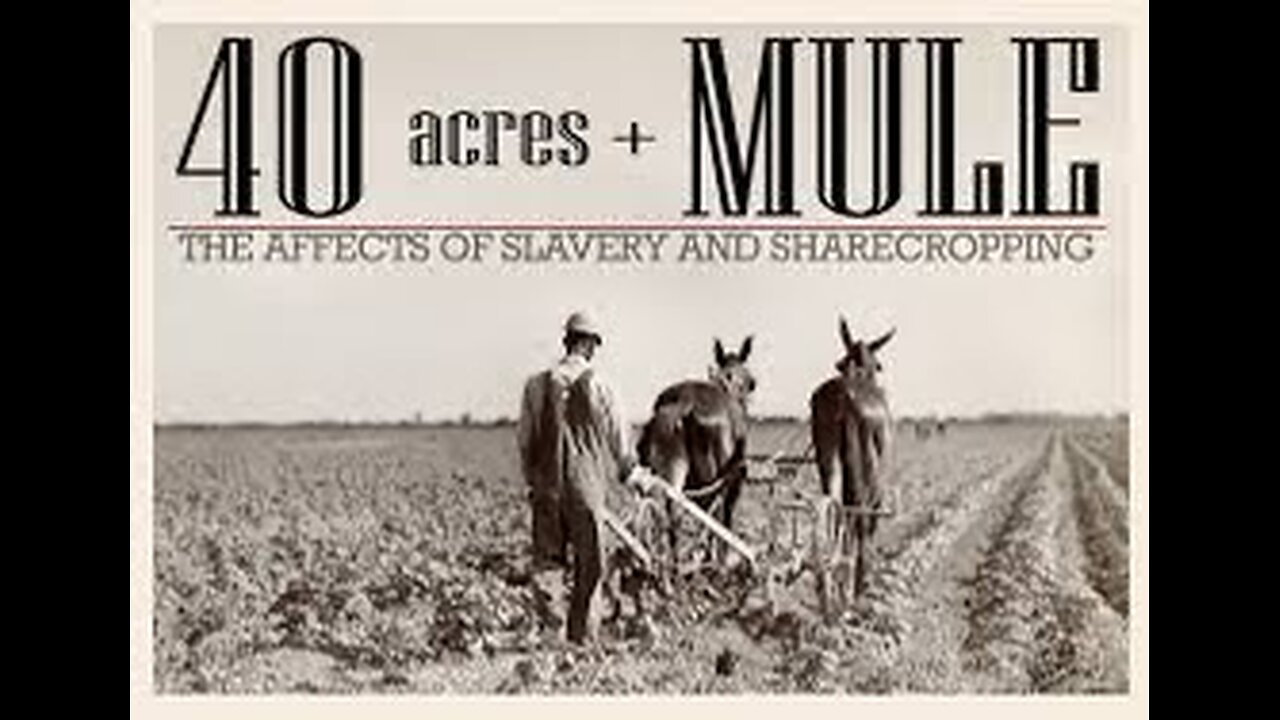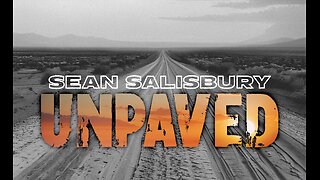Premium Only Content

DAC-Land, Promise, and Betrayal: The Legacy of Sherman's 40 Acres and a Mule
Welcome to another riveting episode of Da Urban Conservative, where we dive deep into the annals of history to unearth the untold stories that shape our understanding of the present. Today, we embark on a journey through the broken promises and systemic injustices that have plagued the African American community since emancipation.
In the aftermath of the Civil War, as the Union Army triumphantly marched through the former Confederate territories, a glimmer of hope emerged for the newly freed African American population. General William T. Sherman's Special Field Order 15, issued on January 16, 1865, seemed to offer a path to economic independence and self-sufficiency. This landmark order promised 400,000 acres of confiscated Confederate land to be redistributed to Black families in 40-acre plots – a pledge that resonated deeply with the aspirations of a community yearning for autonomy.
However, this promise was short-lived, as President Andrew Johnson, a staunch advocate of white supremacy, swiftly overturned Sherman's order, returning the land to its former owners – the very individuals who had fought to preserve the institution of slavery. The betrayal was profound, robbing thousands of African Americans of the opportunity to build a better future for themselves and their descendants.
The repercussions of this betrayal were immense. Denied access to land and economic resources, many former slaves were forced into sharecropping, a system of virtual indentured servitude that perpetuated cycles of poverty and exploitation. Land, once seen as a symbol of freedom, became a tool of oppression in the hands of ruthless landowners who profited off the labor of the disenfranchised.
Despite these formidable obstacles, Black Americans displayed remarkable resilience, acquiring millions of acres of land by 1910 through sheer determination and resourcefulness. Yet, this progress was systematically eroded by a combination of factors, including discriminatory lending practices, institutionalized racism within government agencies, and the prevalence of heirs' property – a form of land ownership that leaves owners vulnerable to exploitation and dispossession.
The loss of land, coupled with generations of systemic discrimination, has had profound and enduring consequences for the African American community. Today, the racial wealth gap persists, with the average net worth of a Black family standing at just one-tenth that of their white counterparts. In agriculture, Black farmers continue to face barriers to success, with net farm income averaging only 14 percent of that earned by their white counterparts.
As we confront the injustices of the past, it is imperative that we heed the lessons of history and work tirelessly to address the systemic inequities that continue to plague our society. The legacy of Sherman's broken promise serves as a stark reminder of the enduring struggle for racial justice and equality in America.
In the words of Malcolm X, "Land is the basis of all independence." Until we confront the sins of our past and dismantle the structures of oppression that continue to perpetuate inequality, true liberation will remain an elusive dream for the African American community.
Join us next time as we continue to unravel the complexities of history and confront the uncomfortable truths that shape our world. Until then, stay informed, stay vigilant, and never forget the promises unkept. This is Da Urban Conservative, signing off.
-
 LIVE
LIVE
The Quartering
2 hours agoFlag Burning, Free Speech, Church Attack & More With Andrew Wilson
26,040 watching -
 LIVE
LIVE
Steven Crowder
1 hour ago🔴Minnesota Catholic School Shooting Update - Shooter & Manifesto
34,325 watching -
 LIVE
LIVE
The Jimmy Dore Show
1 hour agoTrump & Newsom Trade Barbs Over HAND SIZE! Cracker Barrel CAVES to Public Pressure!
2,673 watching -
 LIVE
LIVE
Darkhorse Podcast
1 hour agoThe 291st Evolutionary Lens with Bret Weinstein and Heather Heying
287 watching -
 LIVE
LIVE
StoneMountain64
2 hours agoHUNTING FOR THE FIRST WIN BACK ON WARZONE
221 watching -
 LIVE
LIVE
Jeff Ahern
37 minutes agoNever woke Wednesday with Jeff Ahern
117 watching -
 4:38
4:38
Michael Heaver
4 hours agoBetrayed UK Reaches CRITICAL Moment
483 -
 39:13
39:13
SGT Report
16 hours agoAMERICA'S ZIMBABWE FUTURE -- Guy Gotslak
22.5K24 -
 1:13:02
1:13:02
Simply Bitcoin
4 hours ago $3.21 earnedINSIDER CONFIRMS 1M Bitcoin Buy INCOMING!! | EP 1319
33.9K1 -
 1:03:00
1:03:00
Sean Unpaved
3 hours agoCFB Deep Dive: Matt Moscona's Expert Takes on the Gridiron
27.9K